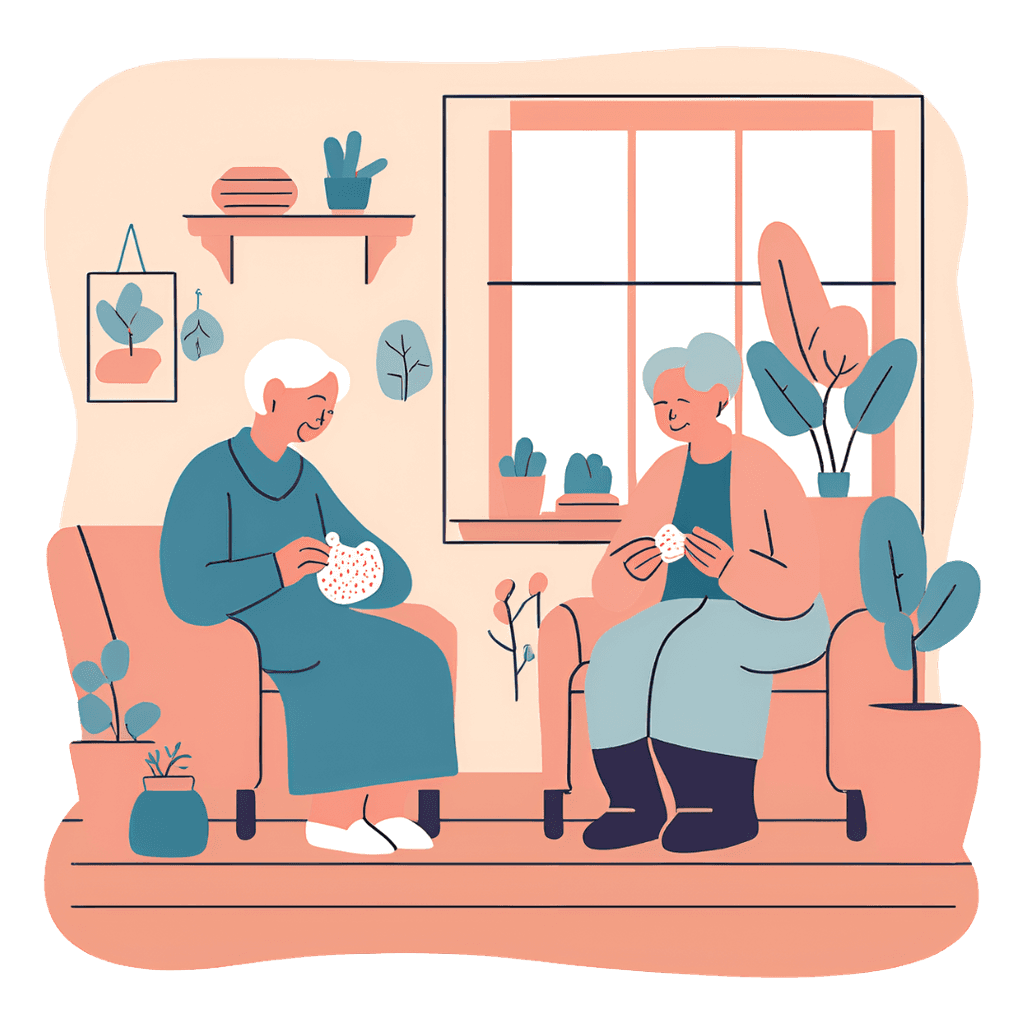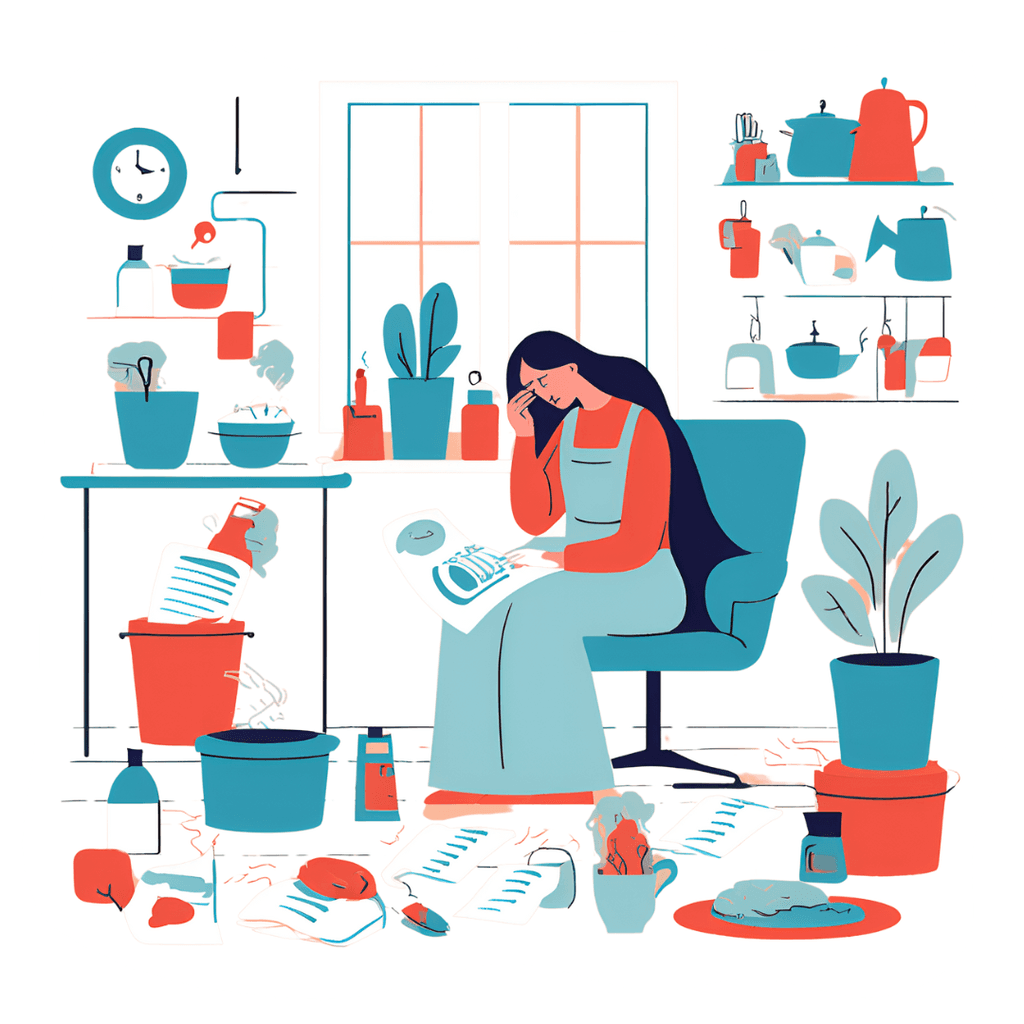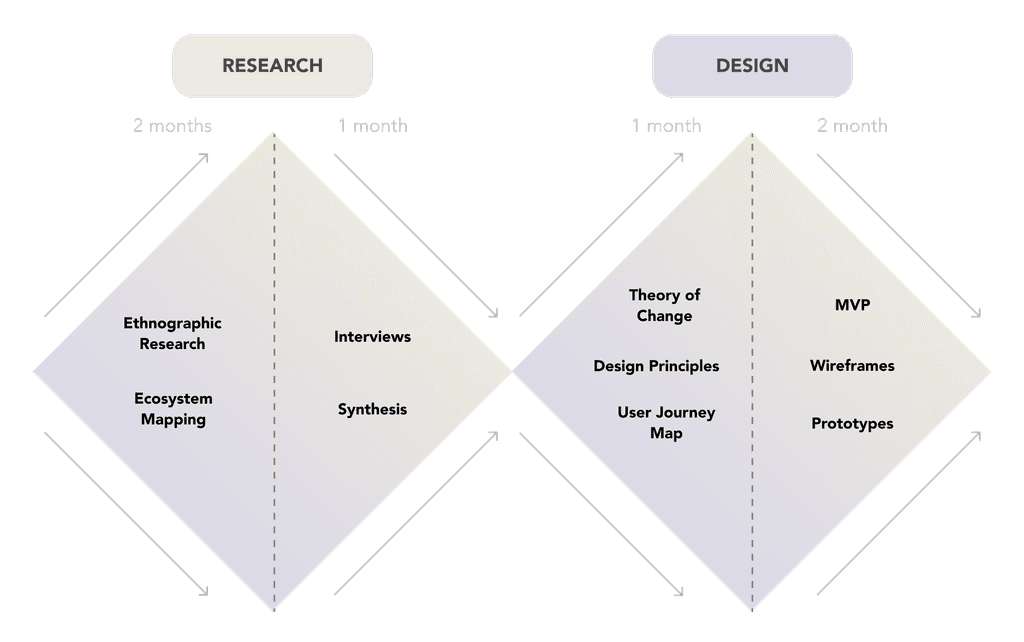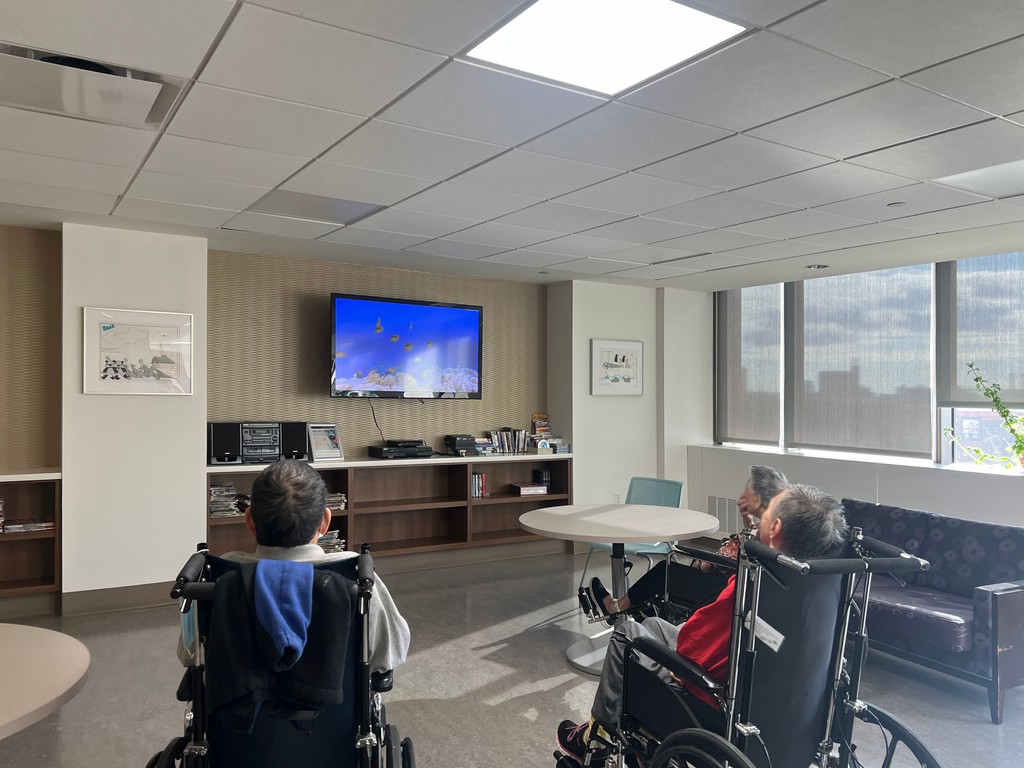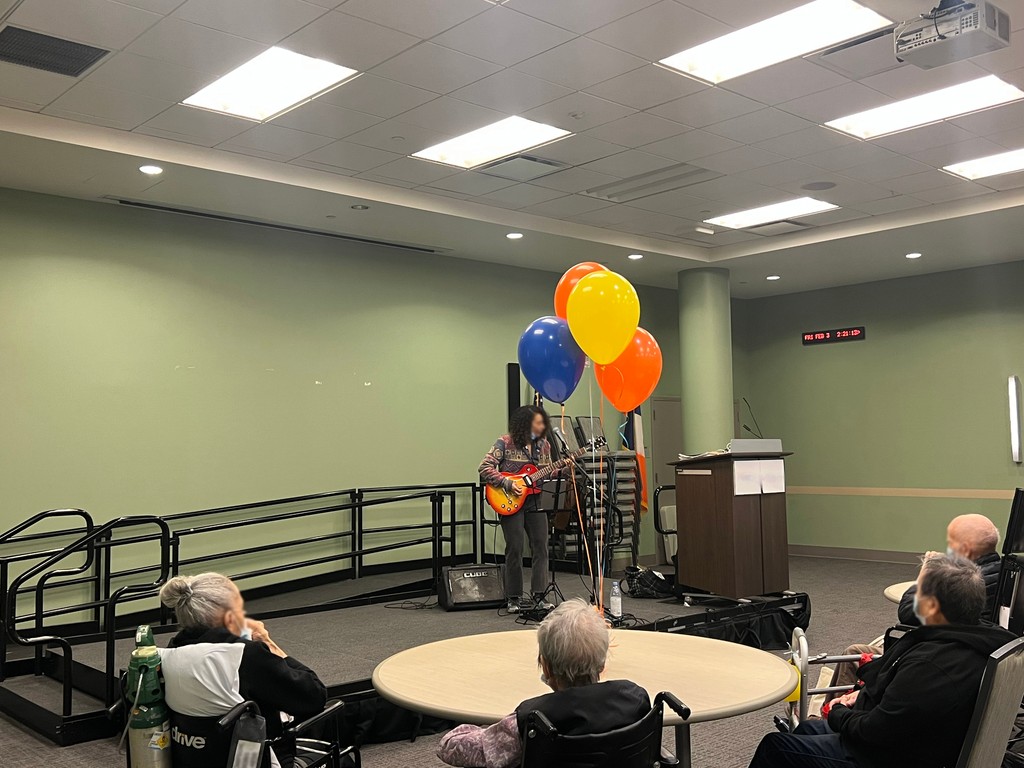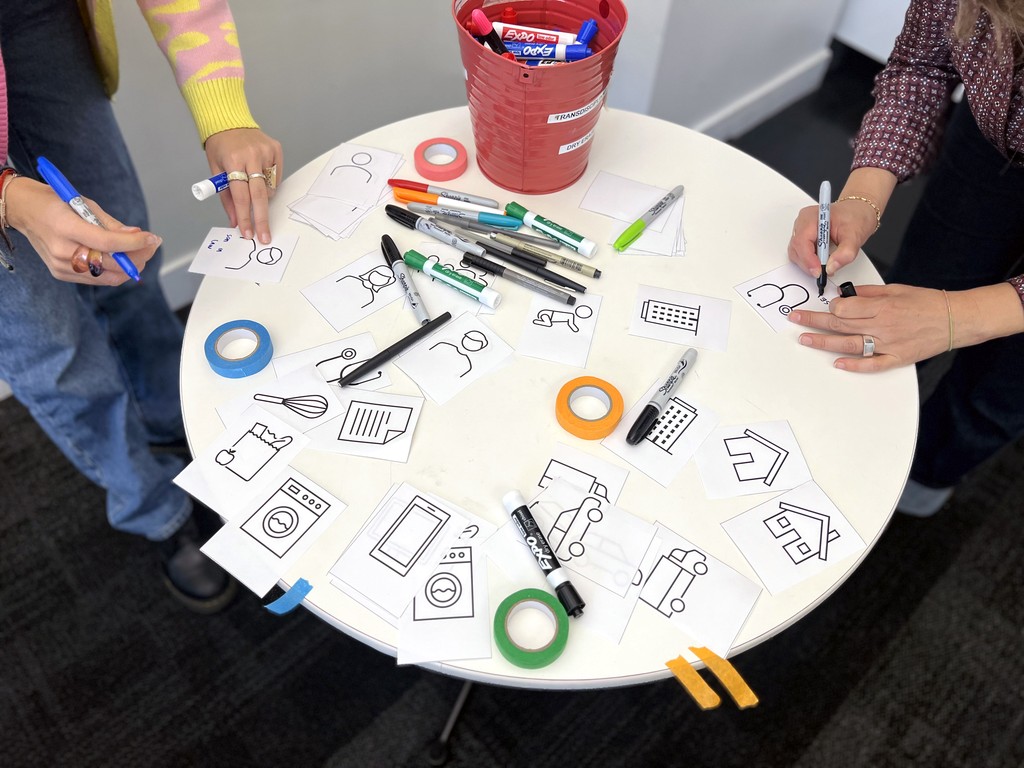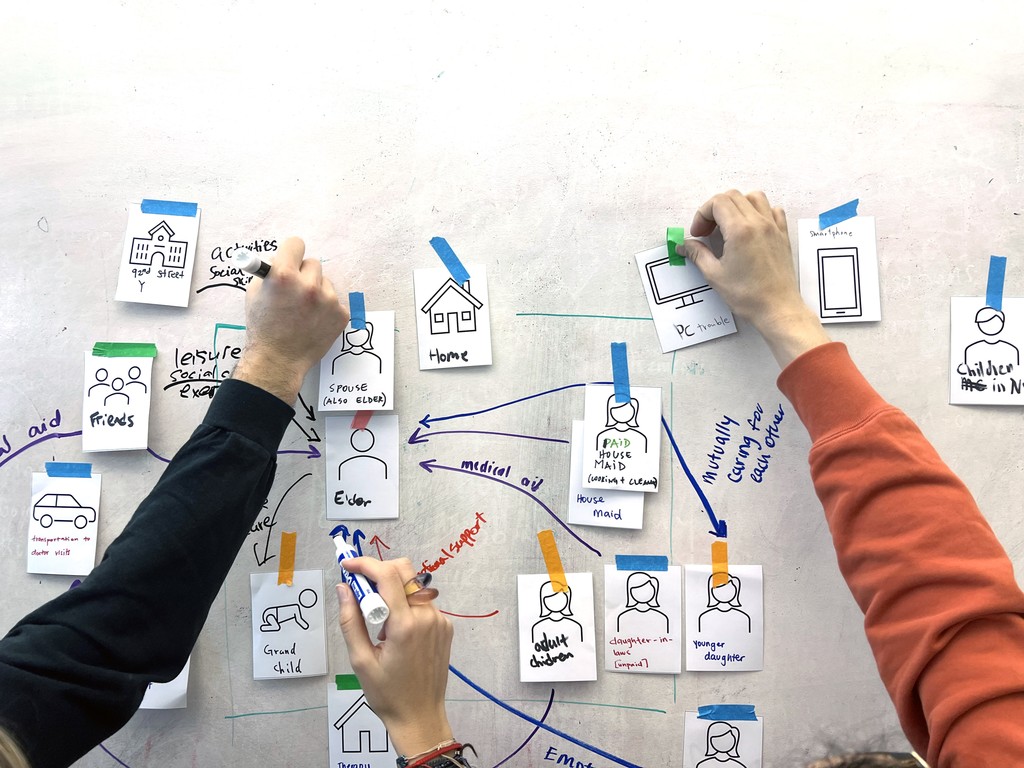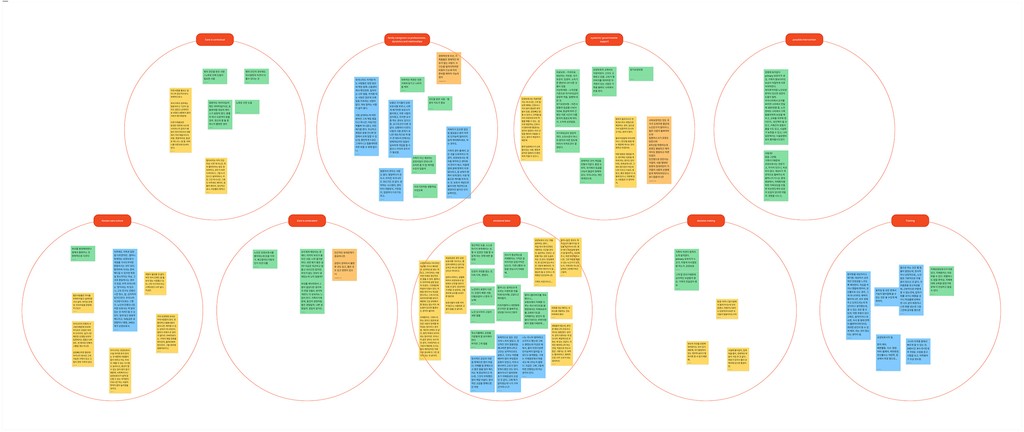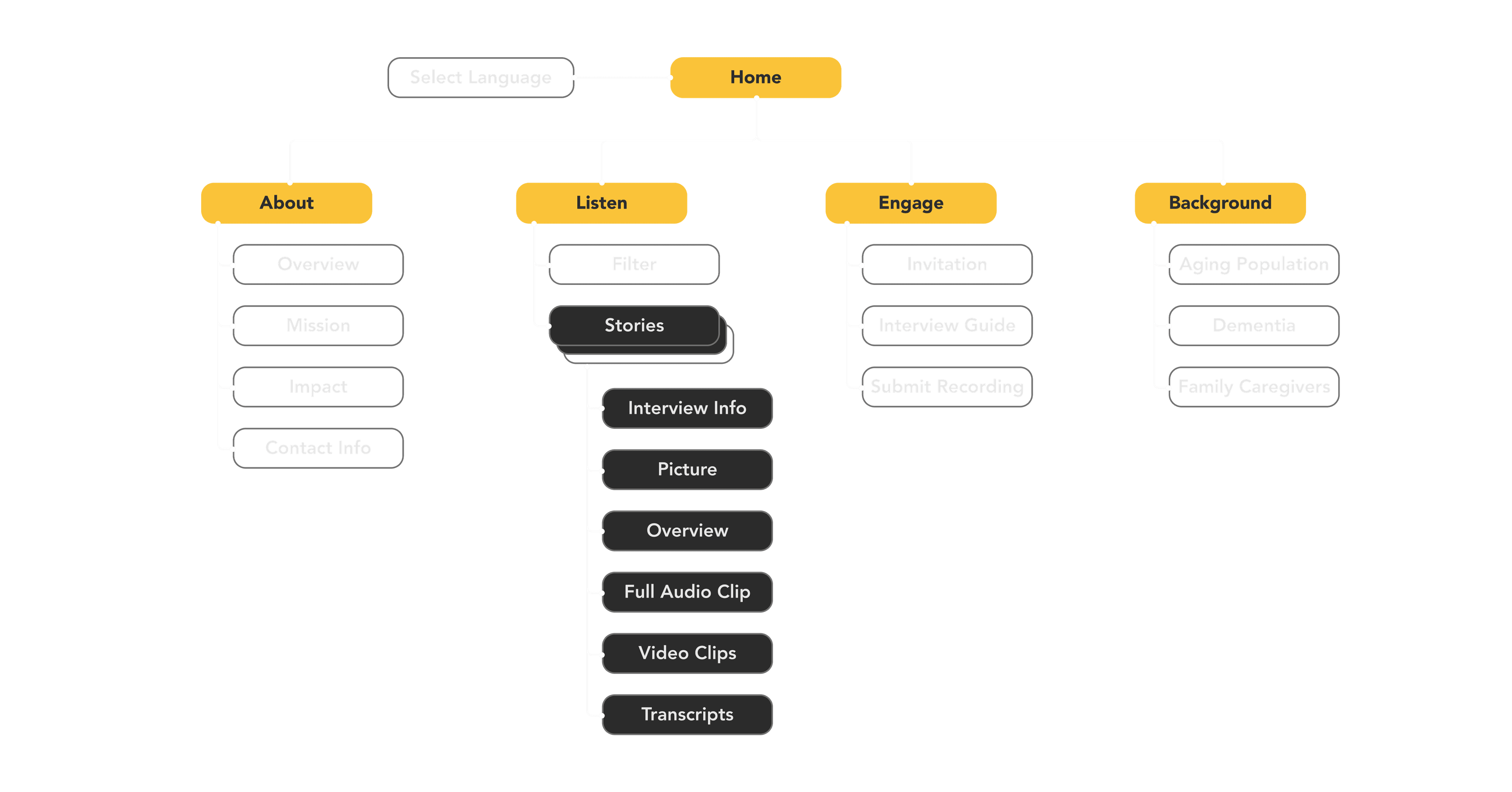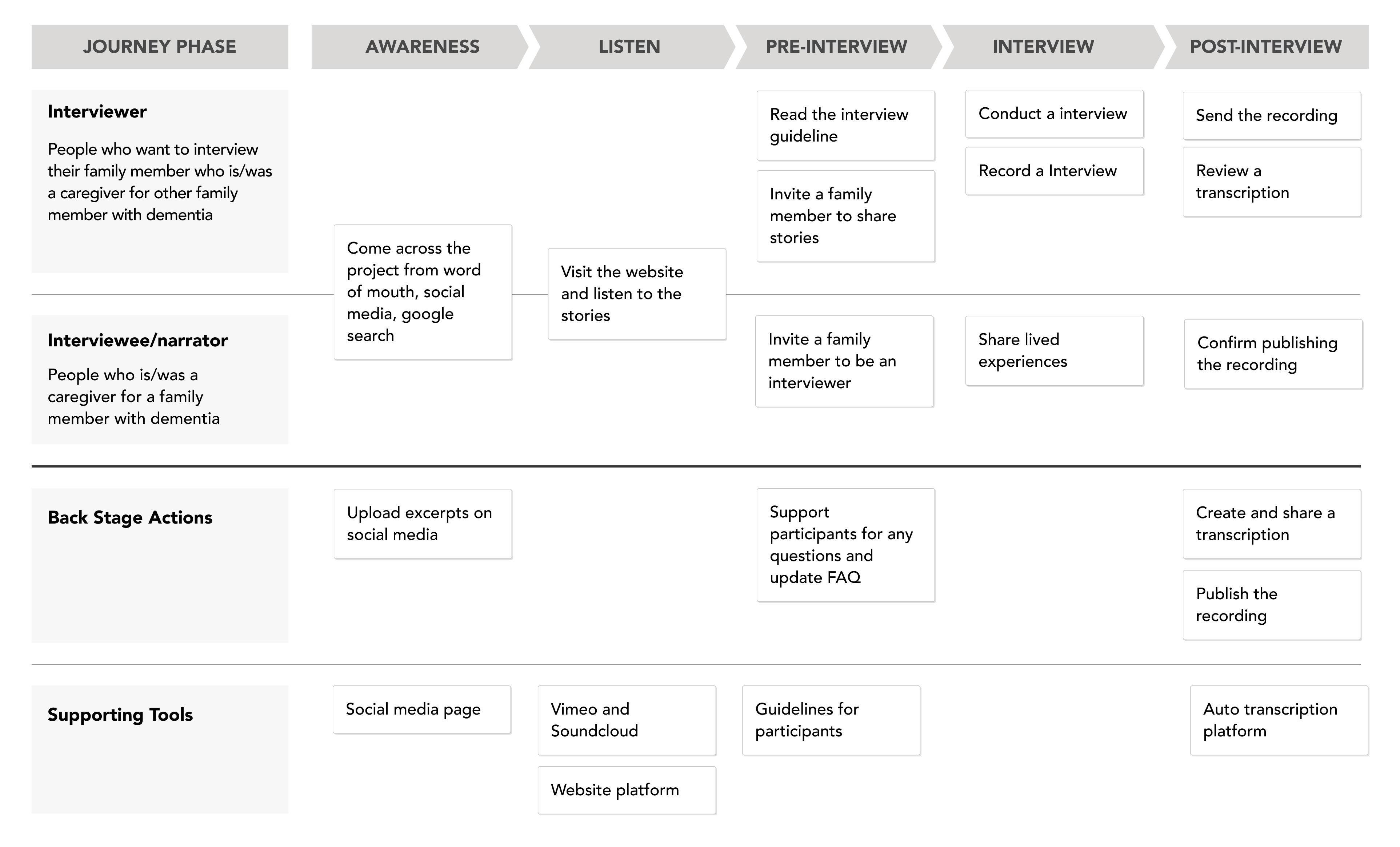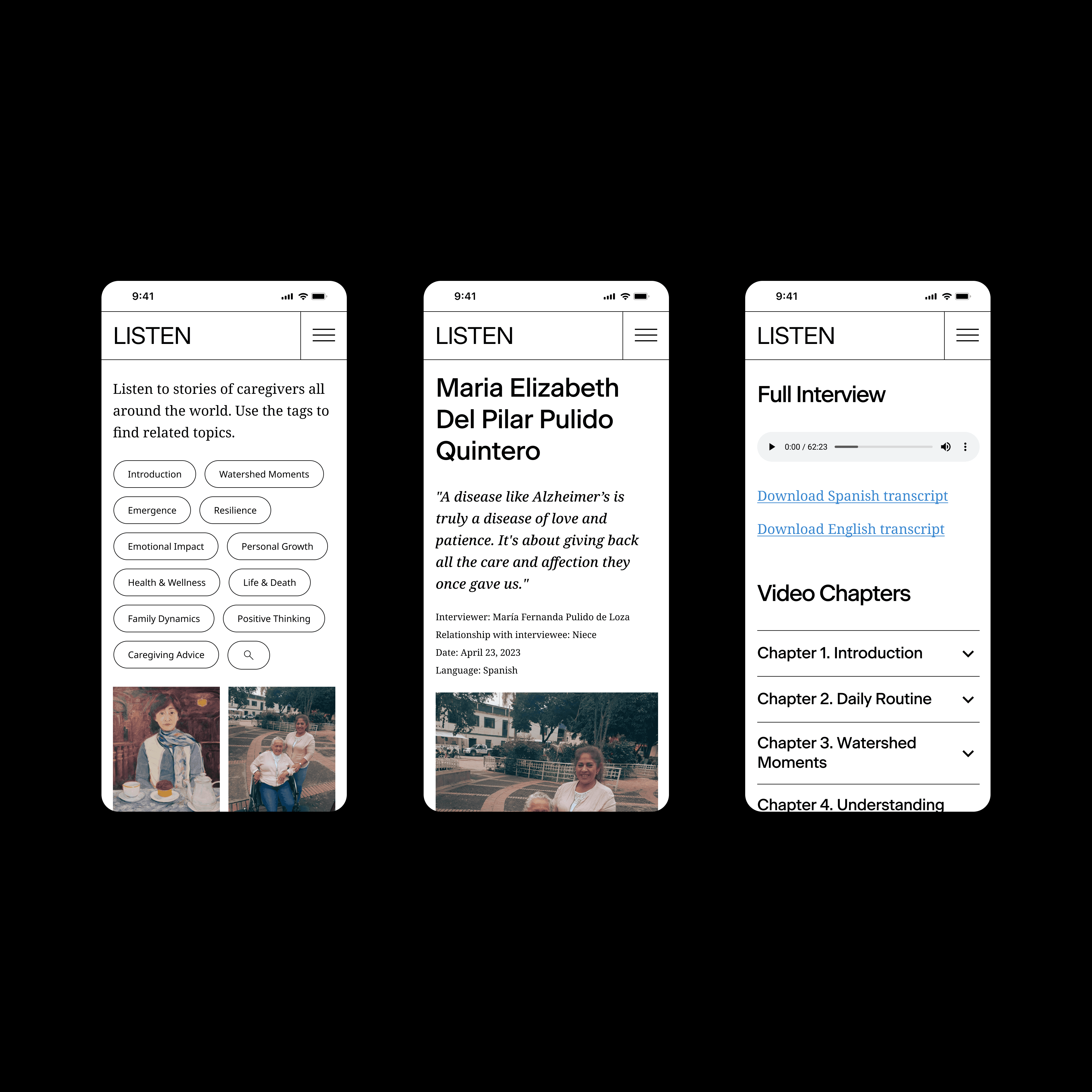Empowering family caregivers for people with dementia through storytelling
Project
Tides of Time
Role
User Research
User Flows
Wireframes
UI Design
Prototypes
Team
Solo Project
Year
2023
(6 months)
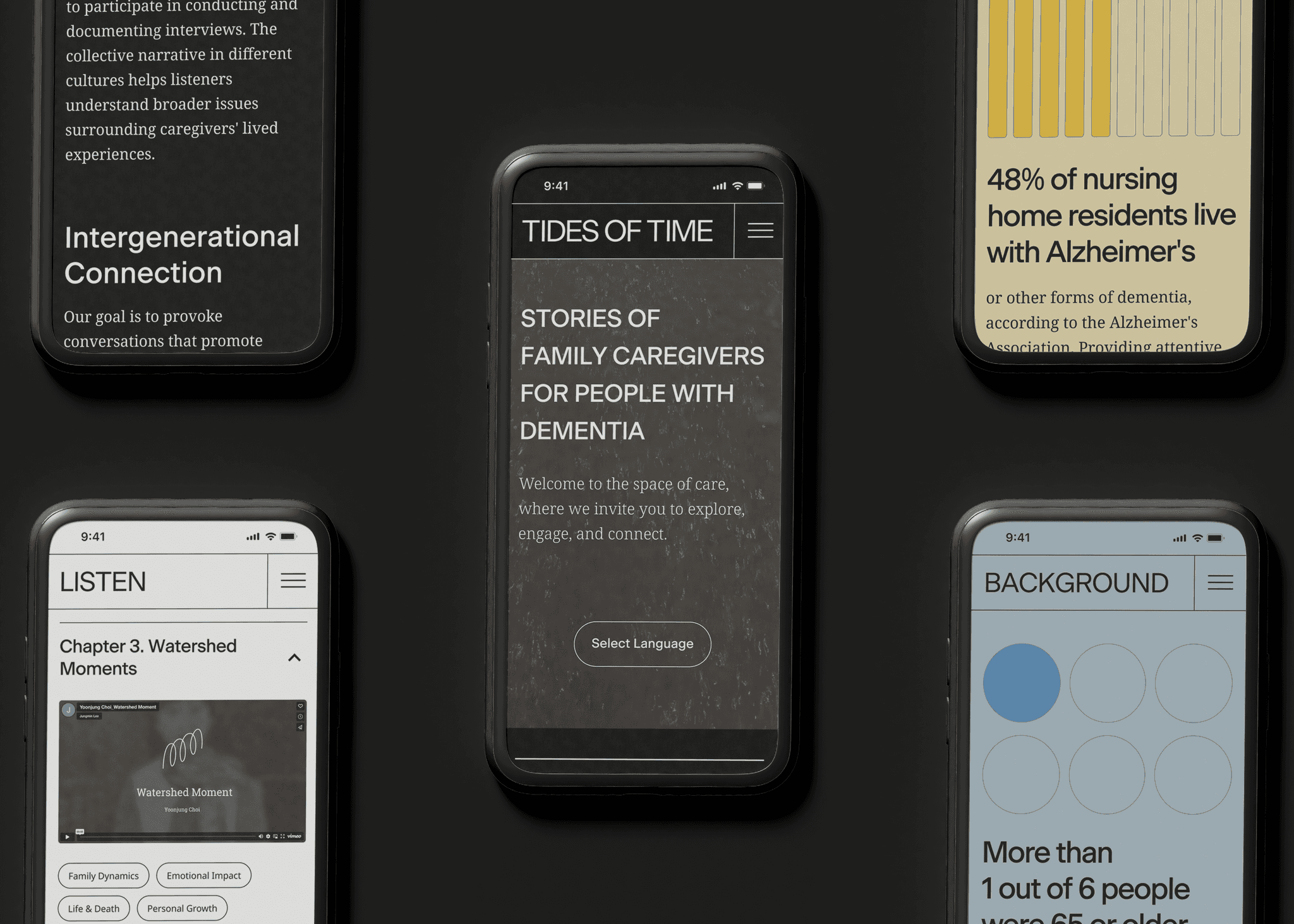
ABOUT PROJECT
Tides of Time is a digital space that supports the well-being of family caregivers of people with dementia, inspired by observing my family members.
background
As the global population ages, the demand for long-term care is steadily increasing. In recent years, societal preferences have shifted towards home-based care rather than institutional care, as families seek more personalized and emotionally supportive environments for their loved ones. However, this shift has placed additional pressure on family caregivers, who often lack formal training and resources to manage the complex needs of dementia patients.
Challenge
How can we alleviate the burdens placed on family caregivers?
Caring for a loved one with dementia involves a range of challenges, from managing daily routines to coping with emotional strain. Family caregivers are often left to balance these responsibilities with their personal lives, leading to burnout and significant mental health challenges. The primary issue caregivers face is the long-term emotional burden of providing care without adequate support systems in place.
Project timeline
Expanding personal challenges into a societal solution through inclusive design
Dementia patients need personal, attentive care, but facilities lack the resources
Caregiving for elders relies heavily on family in a fragmented system across various countries
Family caregivers need a sense of recognition and often lack opportunities to share their stories
Solution
The digital archive allows community engagement, connecting caregivers through storytelling designed to support their mental health
Tides of Time is a platform I am developing to provide family caregivers with a space to share their experiences through recorded interviews. This digital archive focuses on intergenerational storytelling, enabling caregivers to reflect on their experiences and pass them down to the next generation. The platform’s multi-language support ensures that caregivers from diverse backgrounds can participate.
Reciprocity, Co-creation, and Accessibility
The design of Tides of Time is based on three core principles: reciprocity, co-creation, and accessibility. Caregivers are both contributors and beneficiaries, as they gain value from sharing their stories. The platform encourages collaborative storytelling, allowing participants to co-create the narrative. Additionally, multi-language support ensures the platform is accessible to a global audience.
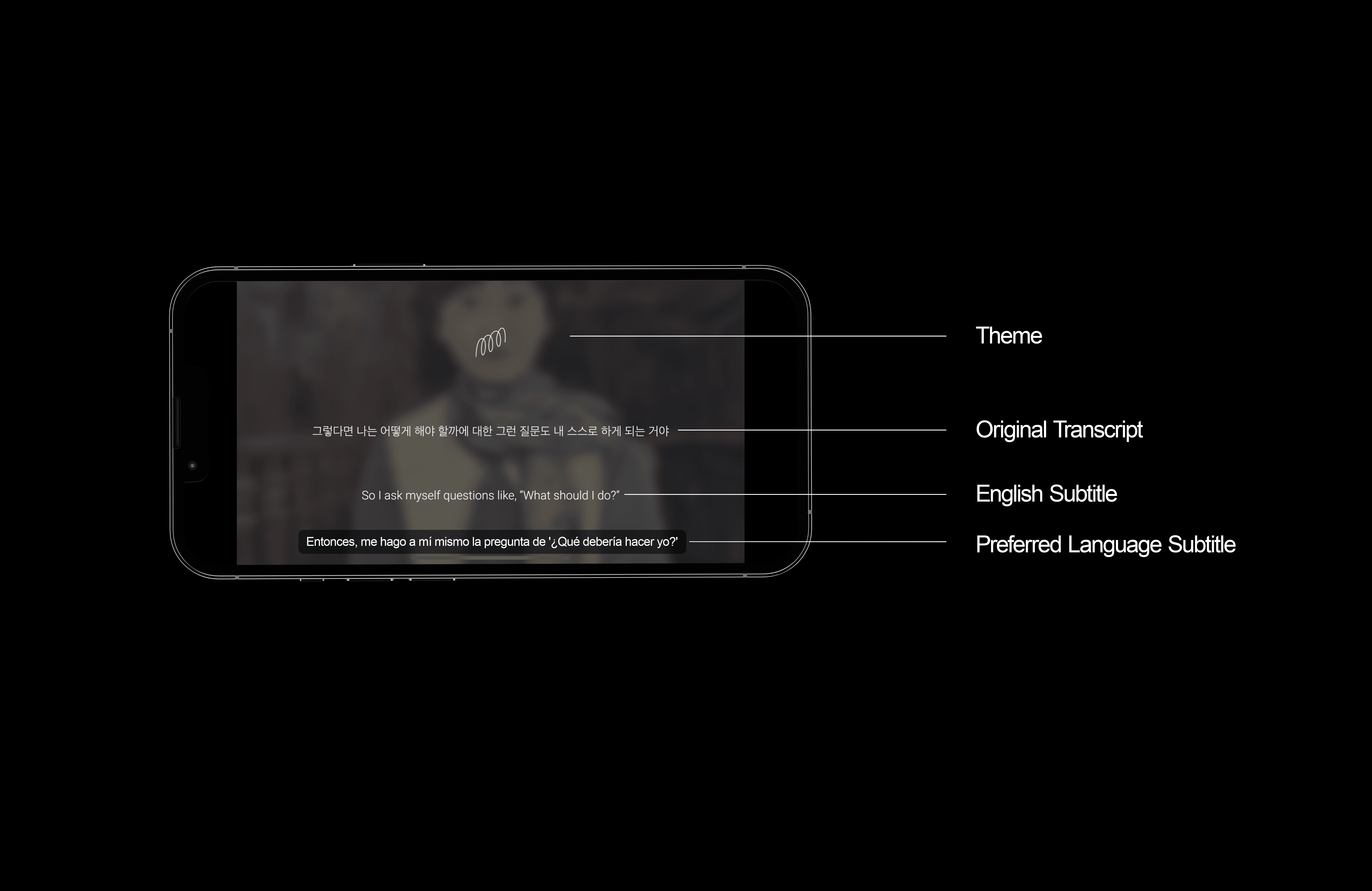
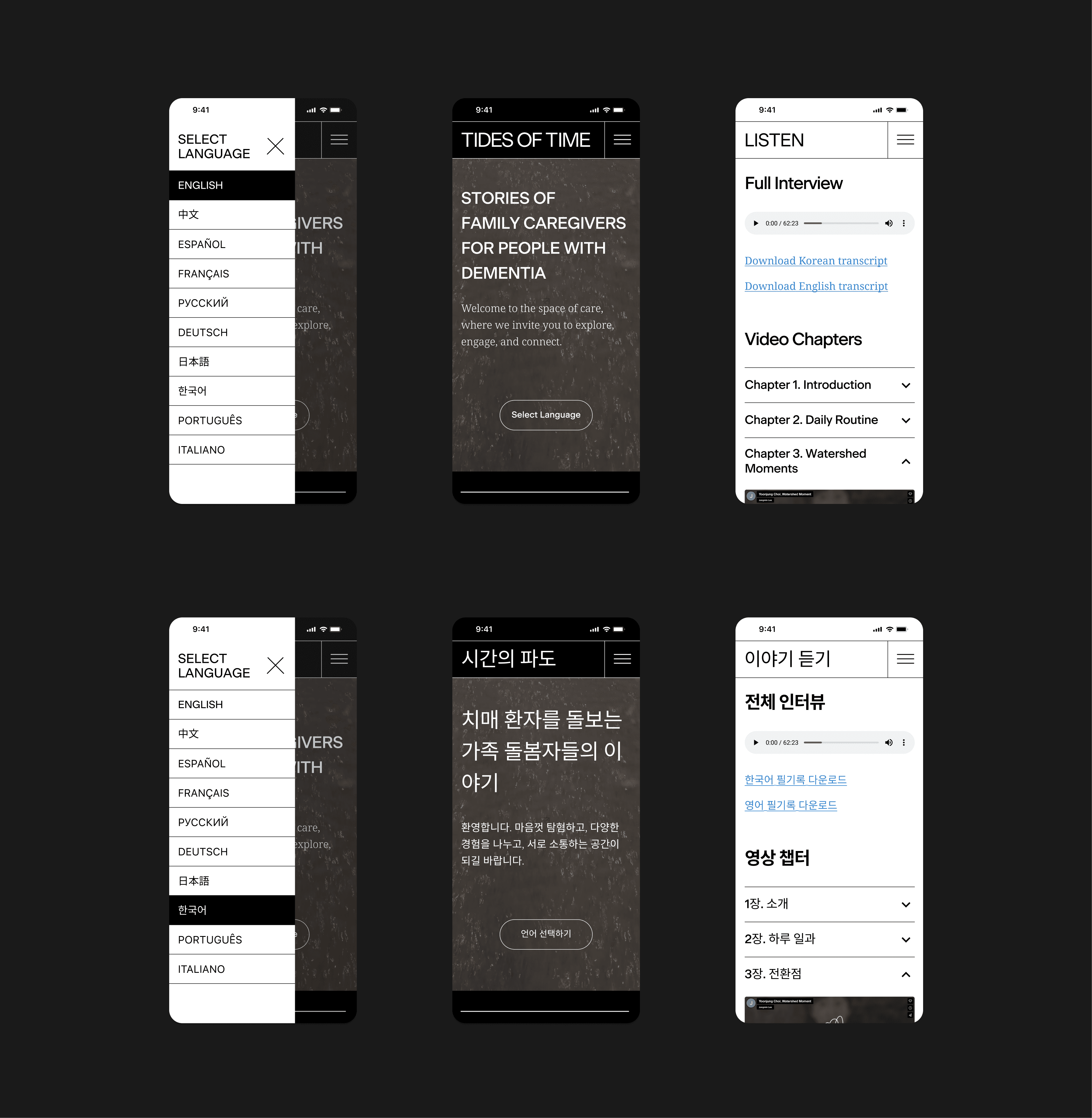
Facilitating intergenerational storytelling to promote well-being and resilience
The interview becomes an interactive documentary format that engages the audience emotionally, fostering social change and advocacy. Its digital nature allows for flexible viewing and wider distribution, increasing accessibility and potential impact. The participatory archive empowers individuals to share their stories authentically, embracing diversity and providing a co-creative space.
Shared guideline to ensure ethical interview processes

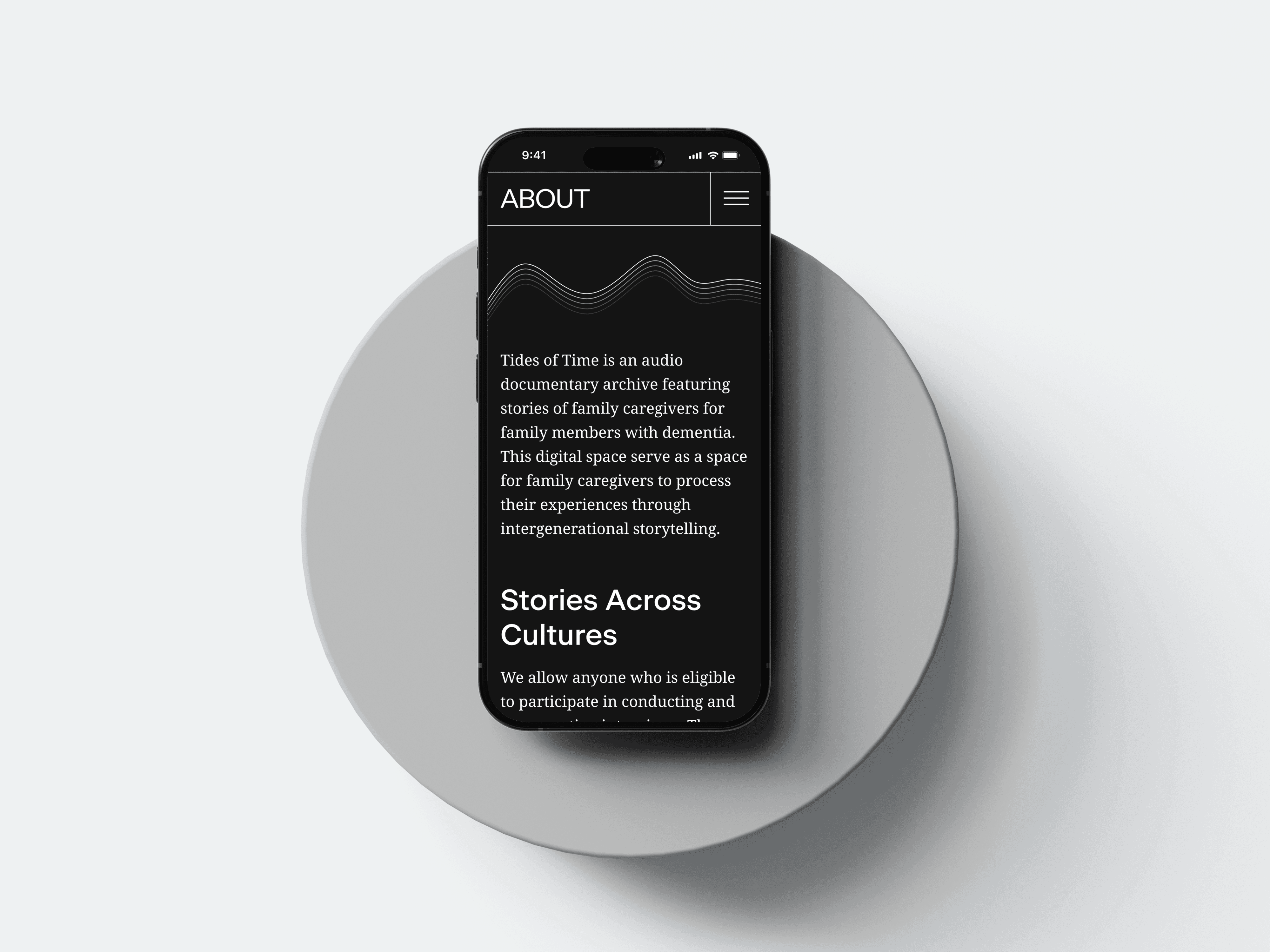
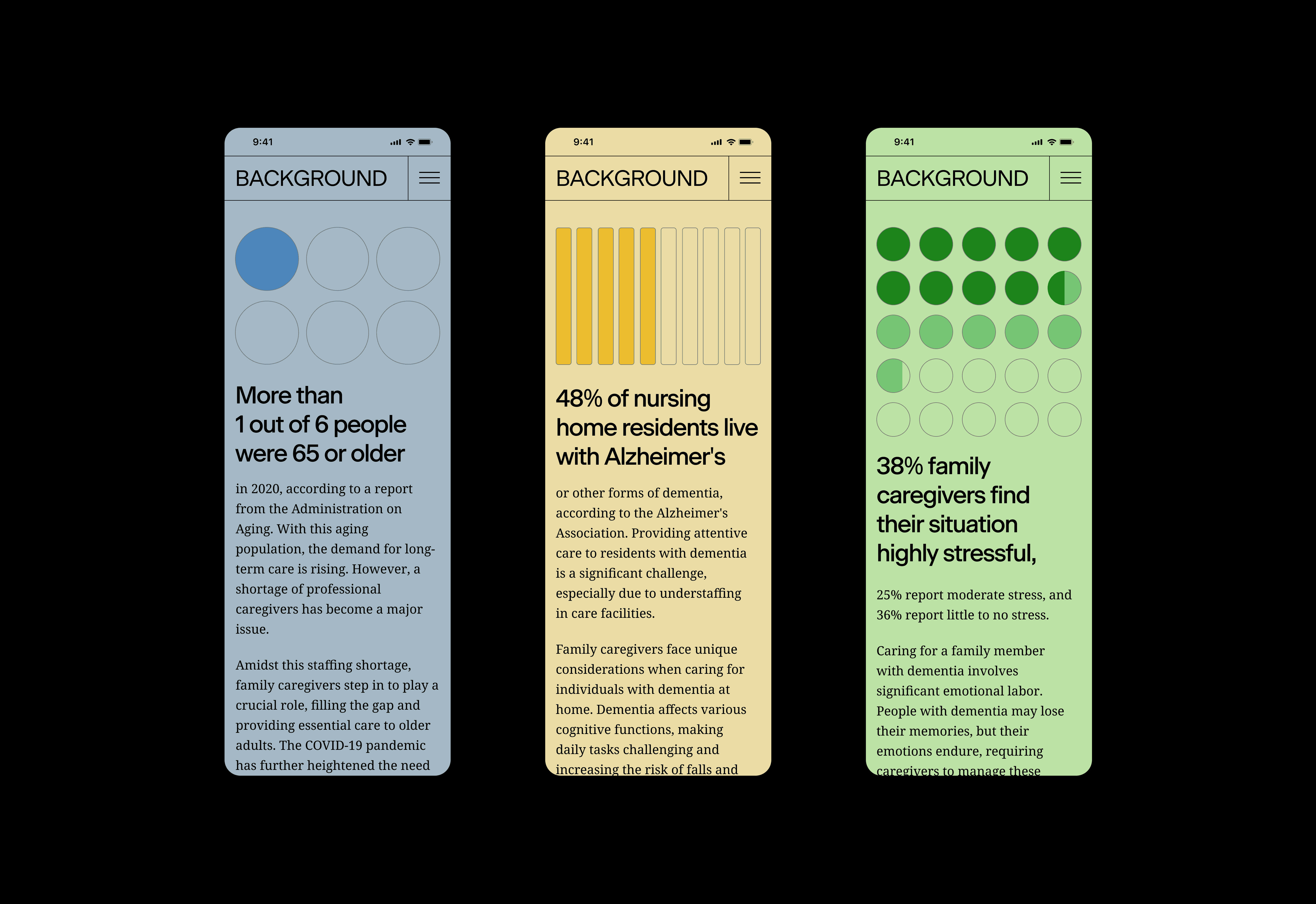

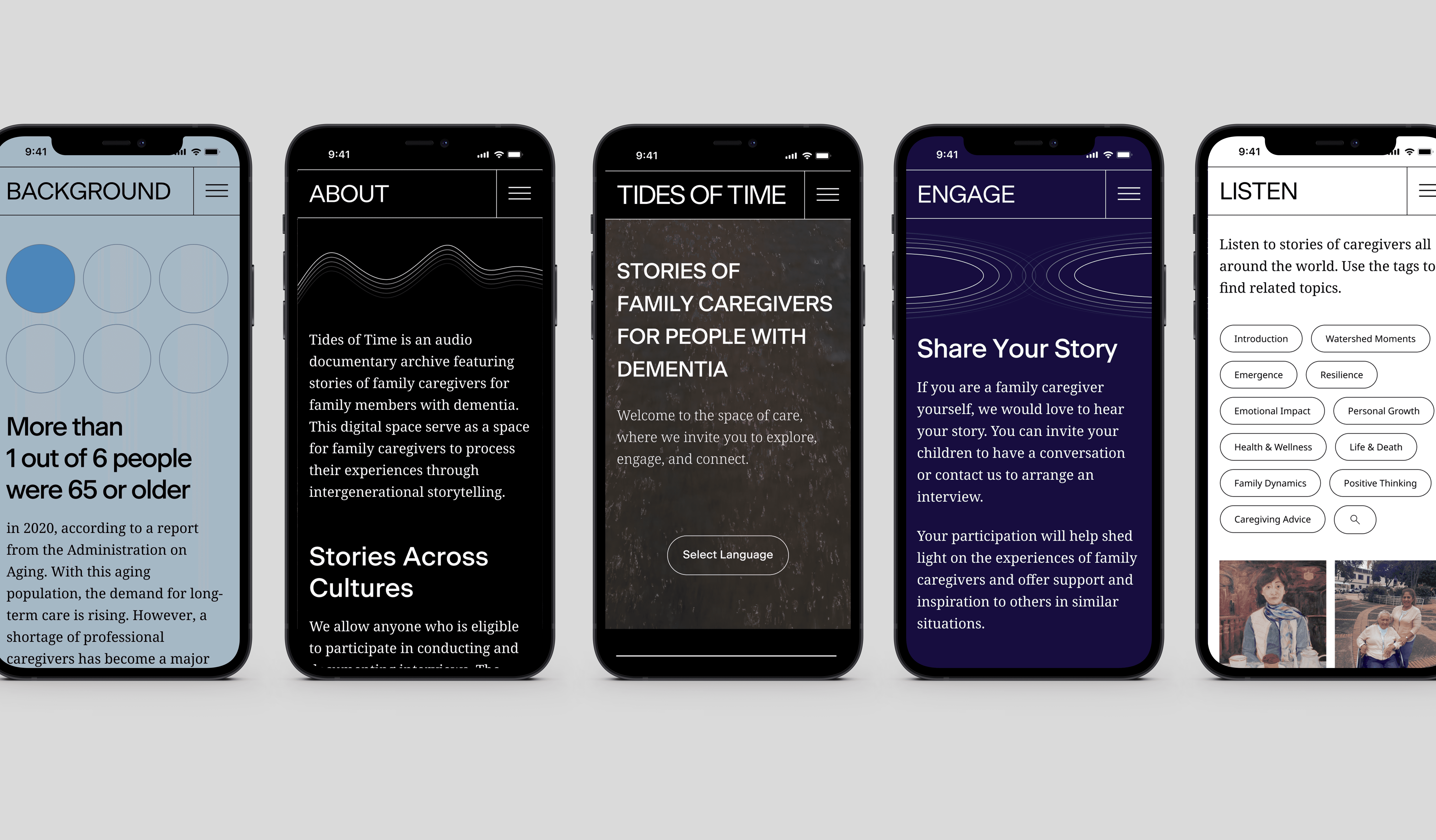
Next Steps
The next steps involve refining the platform with a mobile-first design and progressive enhancement to ensure accessibility across all devices. My goal is to officially launch the platform and begin collaborating with NGO groups to further develop it into a sustainable resource for family caregivers.
